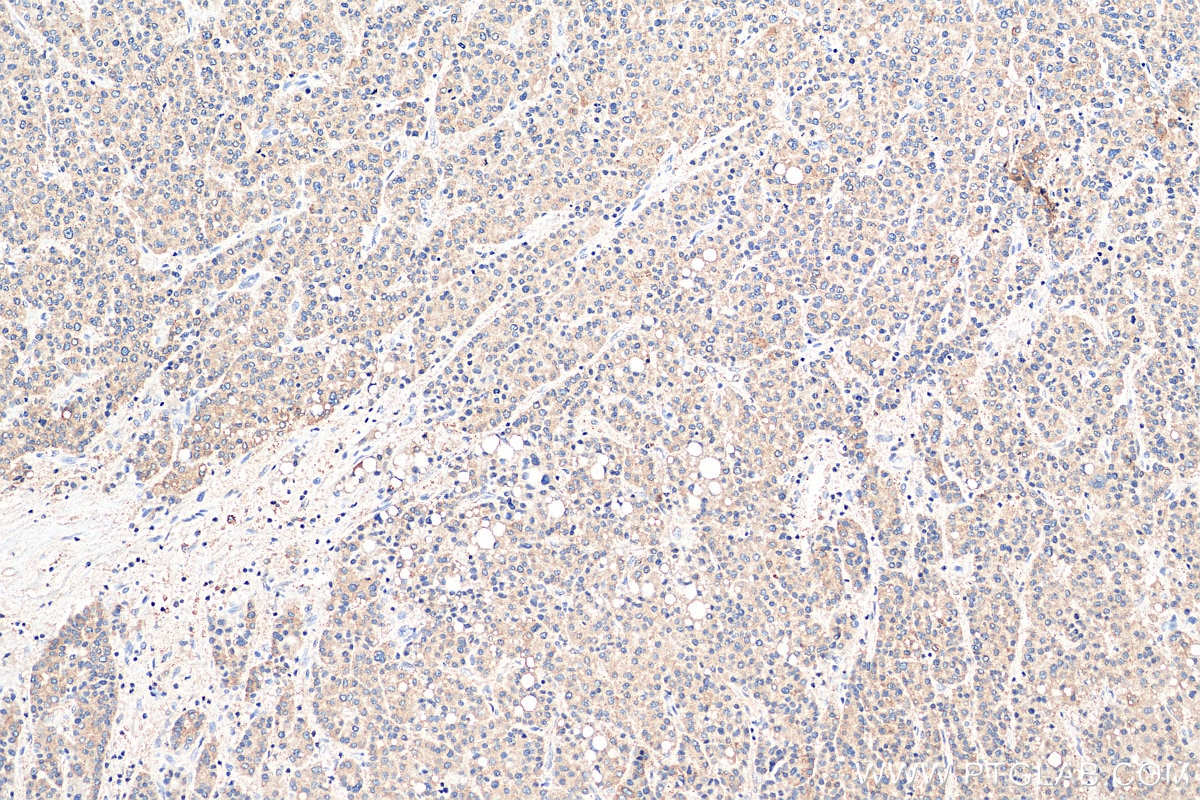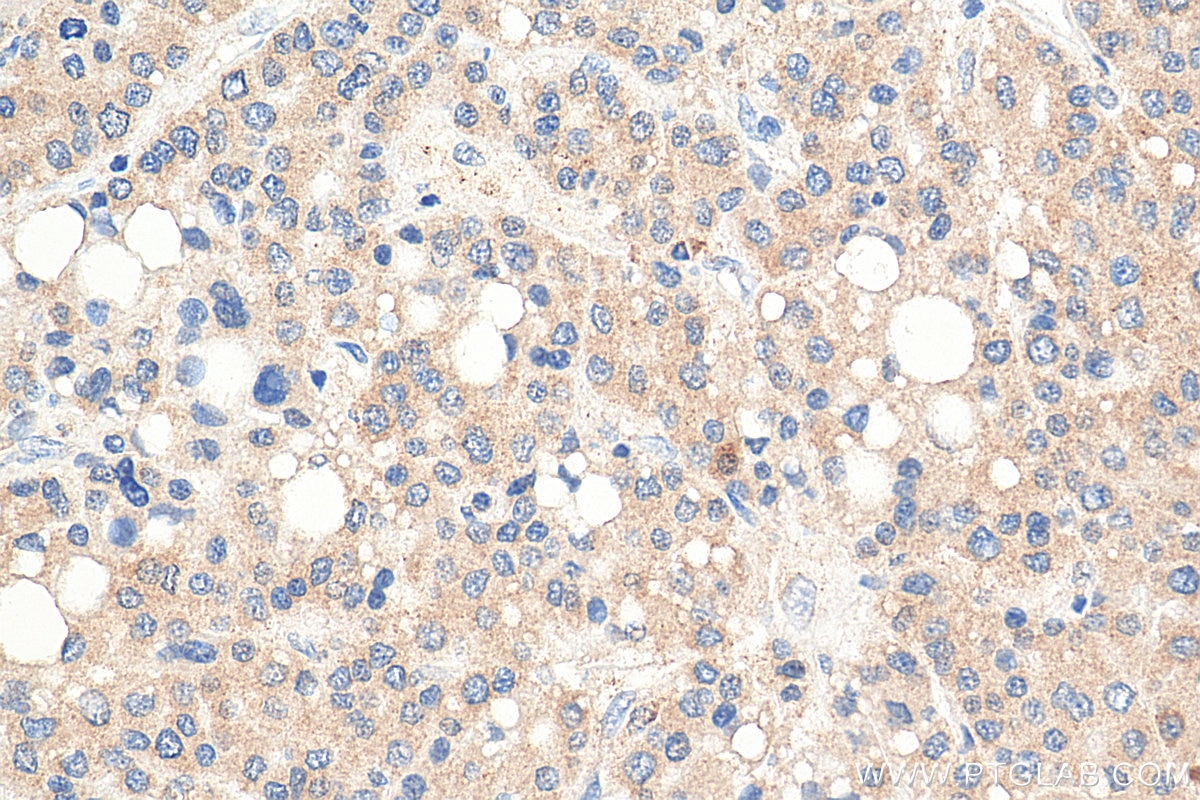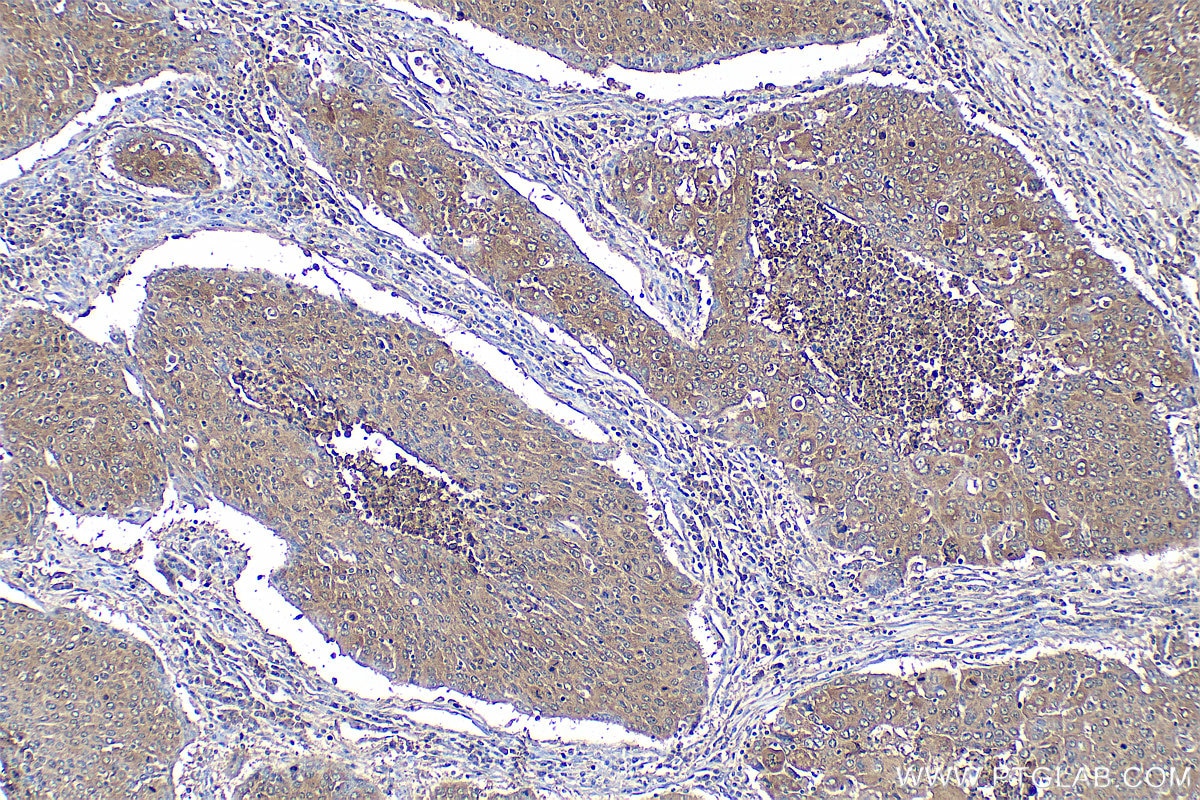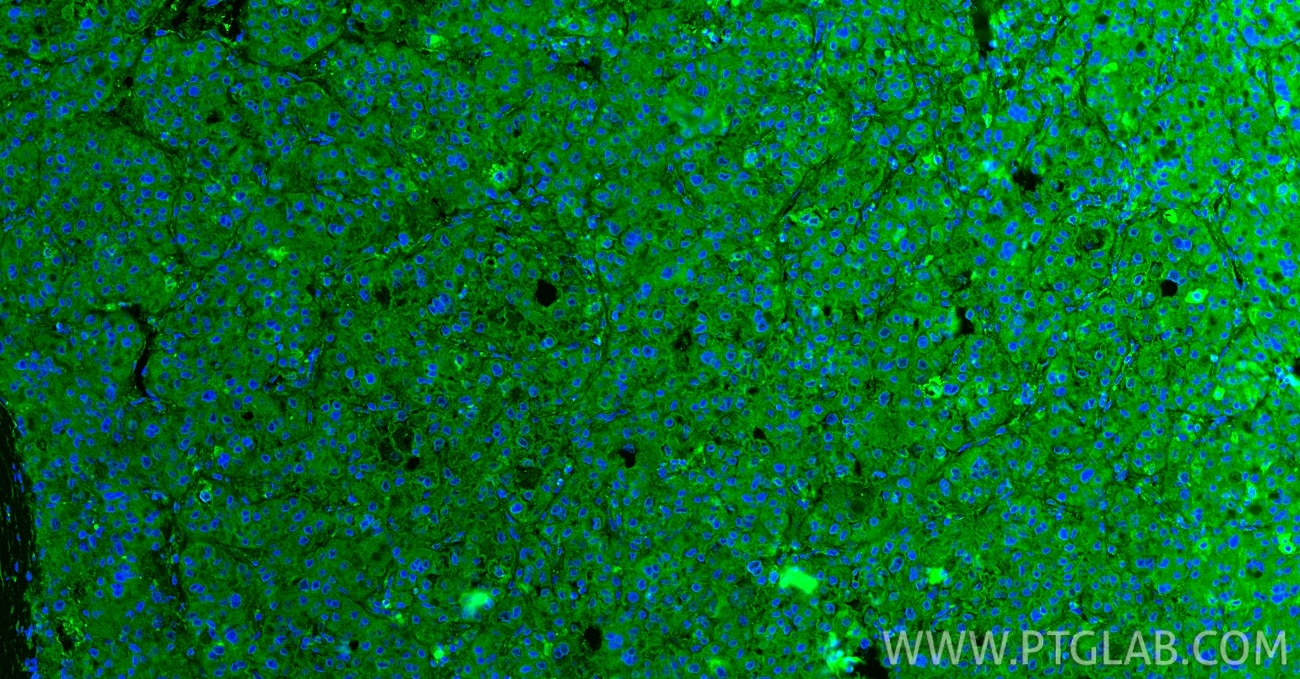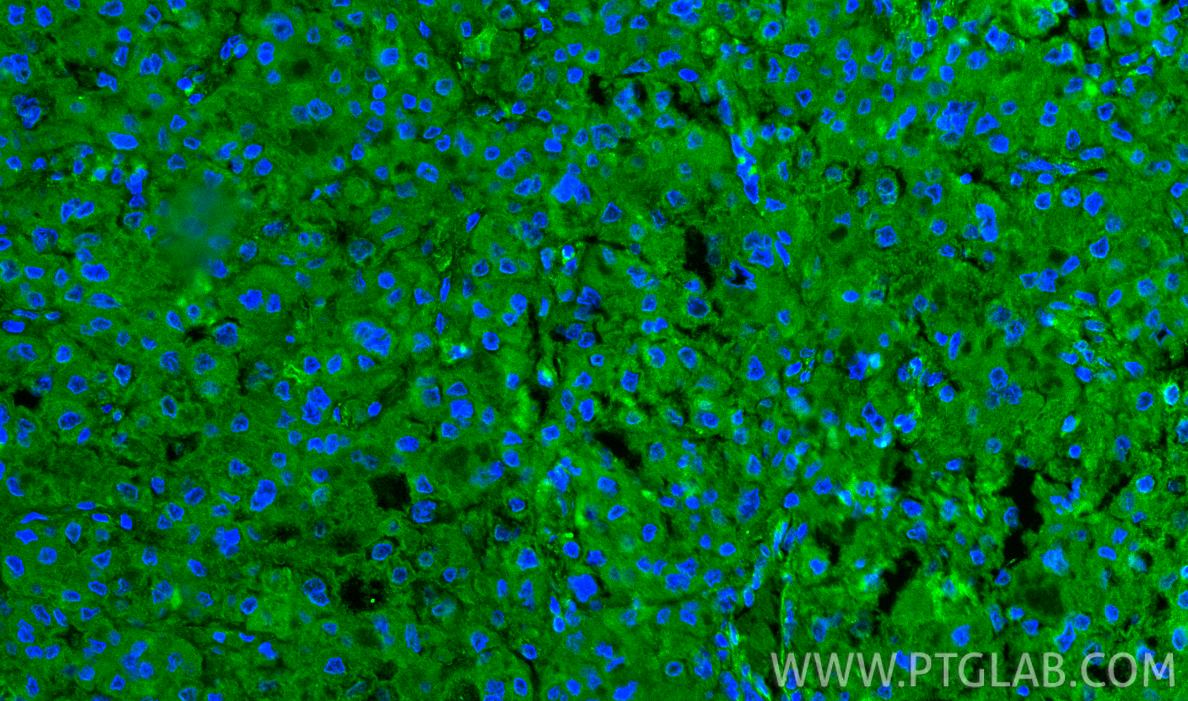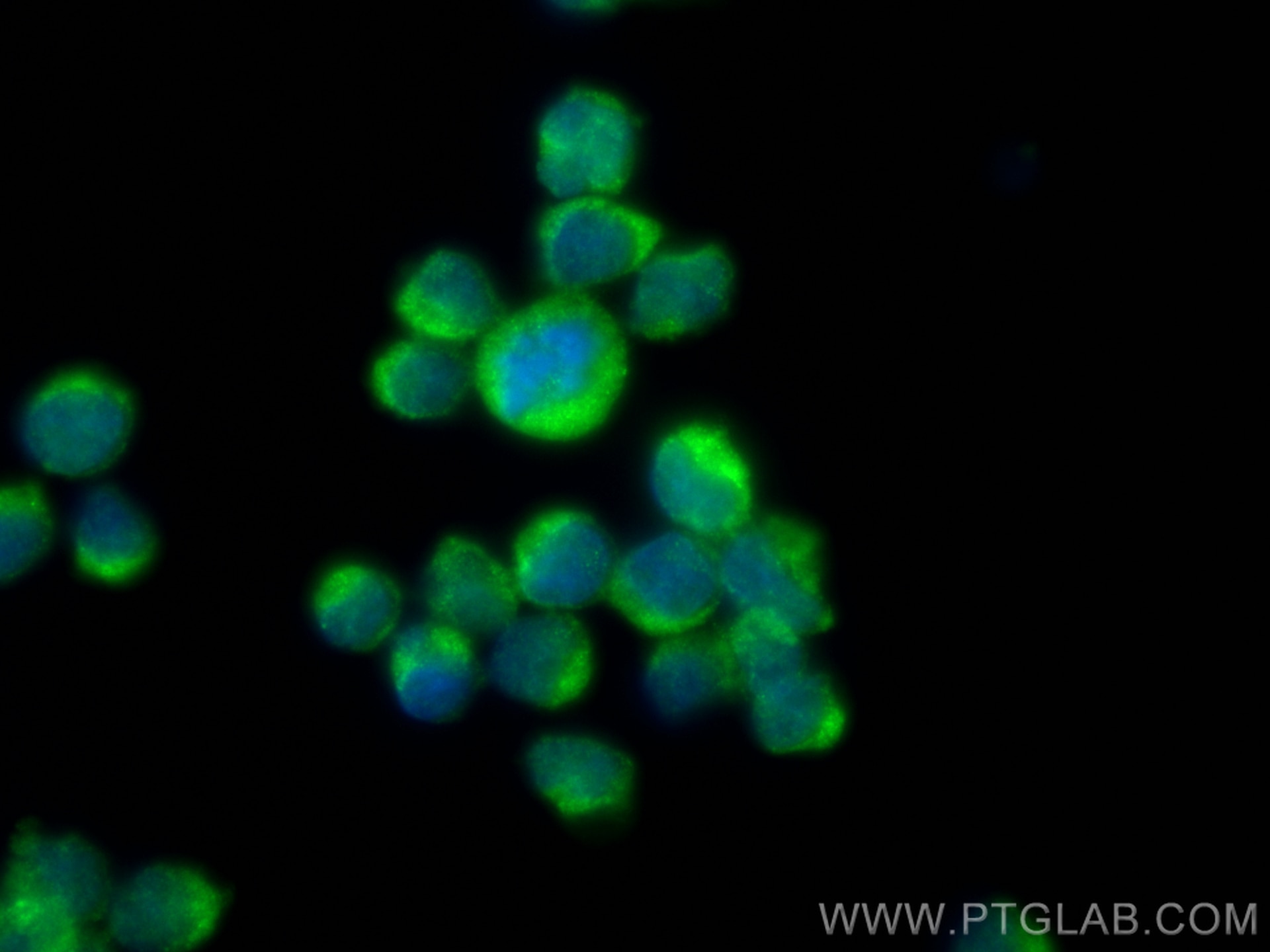Validation Data Gallery
Tested Applications
| Positive IHC detected in | human liver cancer tissue, human lung cancer tissue Note: suggested antigen retrieval with TE buffer pH 9.0; (*) Alternatively, antigen retrieval may be performed with citrate buffer pH 6.0 |
| Positive IF-P detected in | human liver cancer tissue |
| Positive IF/ICC detected in | Jurkat cells |
Recommended dilution
| Application | Dilution |
|---|---|
| Immunohistochemistry (IHC) | IHC : 1:50-1:500 |
| Immunofluorescence (IF)-P | IF-P : 1:50-1:500 |
| Immunofluorescence (IF)/ICC | IF/ICC : 1:200-1:800 |
| It is recommended that this reagent should be titrated in each testing system to obtain optimal results. | |
| Sample-dependent, Check data in validation data gallery. | |
Published Applications
| KD/KO | See 2 publications below |
| IHC | See 24 publications below |
| IF | See 27 publications below |
Product Information
17402-1-AP targets CXCL12/SDF-1 in WB, IHC, IF/ICC, IF-P, ELISA applications and shows reactivity with human, mouse samples.
| Tested Reactivity | human, mouse |
| Cited Reactivity | human, mouse, rat |
| Host / Isotype | Rabbit / IgG |
| Class | Polyclonal |
| Type | Antibody |
| Immunogen |
CatNo: Ag11379 Product name: Recombinant human CXCL12 protein Source: e coli.-derived, PGEX-4T Tag: GST Domain: 19-89 aa of BC039893 Sequence: SDGKPVSLSYRCPCRFFESHVARANVKHLKILNTPNCALQIVARLKNNNRQVCIDPKLKWIQEYLEKALNK 相同性解析による交差性が予測される生物種 |
| Full Name | chemokine (C-X-C motif) ligand 12 (stromal cell-derived factor 1) |
| Calculated molecular weight | 89 aa, 10 kDa |
| GenBank accession number | BC039893 |
| Gene Symbol | CXCL12/SDF-1 |
| Gene ID (NCBI) | 6387 |
| RRID | AB_2878404 |
| Conjugate | Unconjugated |
| Form | |
| Form | Liquid |
| Purification Method | Antigen affinity purification |
| UNIPROT ID | P48061 |
| Storage Buffer | PBS with 0.02% sodium azide and 50% glycerol{{ptg:BufferTemp}}7.3 |
| Storage Conditions | Store at -20°C. Stable for one year after shipment. Aliquoting is unnecessary for -20oC storage. |
Background Information
In adulthood, CXCL12 plays an important role in angiogenesis by recruiting endothelial progenitor cells (EPCs) from the bone marrow through a CXCR4 dependent mechanism (PMID: 17878755). It is this function of CXCL12 that makes it a very important factor in carcinogenesis and the neovascularisation linked to tumour progression (PMID: 16943240). CXCL12 also has a role in tumor metastasis where cancer cells that express the receptor CXCR4 are attracted to metastasis target tissues that release the ligand, CXCL12 (PMID: 11242036 ). In breast cancer, however, increased expression of CXCL12 determines a reduced risk of distant metastasis (PMID: 19646861; 17724466 ). This antibody can detect all the isoforms of CXCL12/SDF1.
Protocols
| Product Specific Protocols | |
|---|---|
| IF protocol for CXCL12/SDF-1 antibody 17402-1-AP | Download protocol |
| IHC protocol for CXCL12/SDF-1 antibody 17402-1-AP | Download protocol |
| Standard Protocols | |
|---|---|
| Click here to view our Standard Protocols |
Publications
| Species | Application | Title |
|---|---|---|
J Nanobiotechnology CXCL12-targeting siRNA nanoparticles alleviate immunosuppression and inhibit tumor progression in esophageal squamous cell carcinoma | ||
Acta Biomater Sodium alginate/collagen/stromal cell-derived factor-1 neural scaffold loaded with BMSCs promotes neurological function recovery after traumatic brain injury. | ||
Biomed Pharmacother Angelica sinensis polysaccharides ameliorated 5-Fluorouracil-induced damage of early B cell progenitors by alleviating oxidative stress of IL-7 producing mesenchymal stem and progenitor cells | ||
Breast Cancer Res CXCR4 promotes tumor stemness maintenance and CDK4/6 inhibitors resistance in ER-positive breast cancer | ||
Mol Oncol Growth arrest-specific protein 2 (GAS2) interacts with CXCR4 to promote T-cell leukemogenesis partially via c-MYC |

